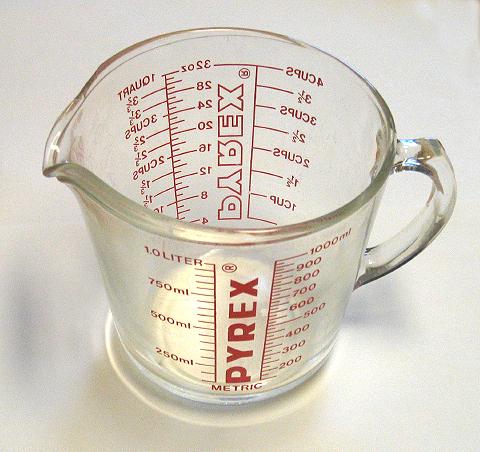An analogy that I once read that has given me pause for thought is that meeting a child’s needs is like filling a cup. The more you fill the cup, the better your child will feel, and children whose cups are full will naturally ask for less. So when your toddler is desperate for attention, if you slather on the attention, his need for it will be fulfilled and he will no longer ask for it. At face value, it doesn’t sound all that problematic. I like the idea of it, and to some extent agree. But my problem with this analogy is the premise that a child’s cup can ever actually be ‘full.’

The majority of people in our society believe that if you pick up a baby when he cries, he will ‘get used to it,’ the mother will be ‘making a rod for her own back’ and the baby may be ‘spoiled.’ This view, like the idea of a full cup, is based on the idea that attention, needs and even love can be measured. When a child’s cup has reached the top line, we know that he has had enough attention, love, physical contact, or whatever for that day. When a mother gives her child ‘too much’ attention or physical contact, the conclusion is that these actions will have a detrimental effect.
Today I overheard on Twitter that two women on a train were complaining that a mother in an adjacent seat was kissing her baby too much and too loudly. Moreover, many people continue to feel uncomfortable with public breastfeeding. For some people, PDA (public display of affection) isn’t just off-limits for amorous teenagers: even mothers and babies have to follow certain cultural norms for how much love and attention they can give their children.
Apparently, and ridiculously, there is a point when enough is enough.
But when is that? And who decides?
Here is where the argument breaks down. If I shouldn’t pick my baby up every time he cries, exactly how much should I pick him up? Every other time he cries? Once per hour? Only when it’s a full moon? I like evidence-based research and I’d like to see the evidence that explains why any of these are right.
When we buy into the idea that there are externally-determined rules about meeting a baby’s needs, the parameters around what is ‘correct’ parenting become hazy. The idea that there are rules proves to be self-defeating because nobody can ever agree on what those rules are. The result is that mothers are often confused about what they ‘should’ do, and instead of listening to their instincts they follow parenting ‘experts’ who often have little experience of looking after babies, and may not even have children themselves. Looking outside of themselves for advice has the unfortunate effect of further muffling the mother’s voice from within. And it does the baby no favours either.
I question the idea that there is ever a point when enough is enough. After thinking about the cup analogy for some time, I jokingly commented to a friend that I think my children’s cups are leaking. I read them stories, talk with them, play with them, push them on the swings, scratch their backs, nurse them and make them the centre of my day. Still, they want more. I stop pushing them on the swing to stir the dinner cooking on the stove or (gasp!) to go to the bathroom, and they still ask for more. There is never a point when their need for me is less. No matter how much love and attention I give them, their cups are never full enough. Being together and having mummy’s attention feels good– and they like feeling good. Their needs are unquantifiable and ever-changing. There are no lines on my child that measure his ‘fullness’ because there is no unit of measure for ‘feels good.’
There is no single recipe for parenting. The exact quantity of each of the ingredients my child needs in life is determined by one person and one person only: my child. He gives me all the evidence-based research I need. If I need a parenting expert, I need look no further than the child nestled in my arms. He knows what he needs and what he wants. And what he wants are kisses, lots of them… loud ones, and preferably on a train.
Photo credit: Daniel PB Smith, Wikimedia Commons.
Comments are closed